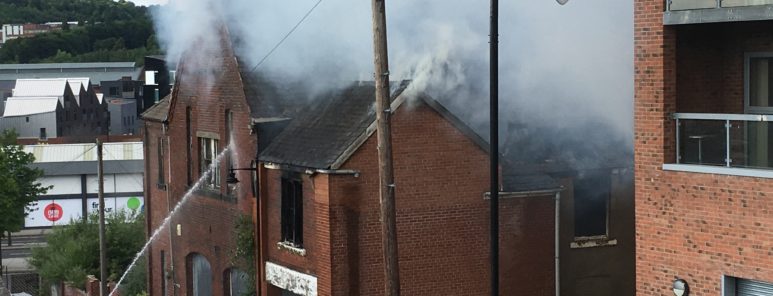There are several ways you can help keep your tenants and your properties safe.
This involves addressing potential issues such as hoarding and ensuring that smoke alarms are fitted on every storey of the property.
Hoarding
The NHS describes hoarding as a disorder where somebody acquires an excessive number of items and stores them in a chaotic manner. Said items can have little or no monetary value and result in unmanageable levels of clutter.
If one of your tenants is a hoarder, it can significantly increase the chance of a serious fire occurring
Not only can hoarding make it much harder to escape a fire, with fire exits being blocked by large amounts of clutter, but it can also increase the speed at which fire spreads. This is because the clutter can increase the ‘fire loading’ – where large amounts of flammable items (such as books, newspapers) make it easier for the fire to spread across a property.
What can you do as a landlord?
- Carry out regular inspections and speak to your tenants about what sort of help they may need
- Keep in regular contact with hoarding tenants to check whether they are receiving treatment for their condition and whether they feel as though they are able to manage their behaviours on an everyday basis;
- Make sure they have working smoke alarms and test them regularly
- Speak to your local authority to see what support is available
You can find out more about hoarding on Hoarding UK’s website.
The NHS also provides information about hoarding as a mental health disorder on their website.
Smoke alarms
Properly fitted and functioning smoke alarms are crucial for the safety of your tenants and property.
As of October 2015, UK law mandates that landlords must ensure smoke alarms are installed in rented properties.
- At least one smoke alarm must be installed on every storey of the property.
- Carbon monoxide alarms must be fitted in rooms with a solid fuel-burning appliance.
- Install alarms in key locations, such as hallways, kitchens, and bedrooms.
- Test alarms monthly and replace batteries annually.
- Replace smoke alarms every ten years.

